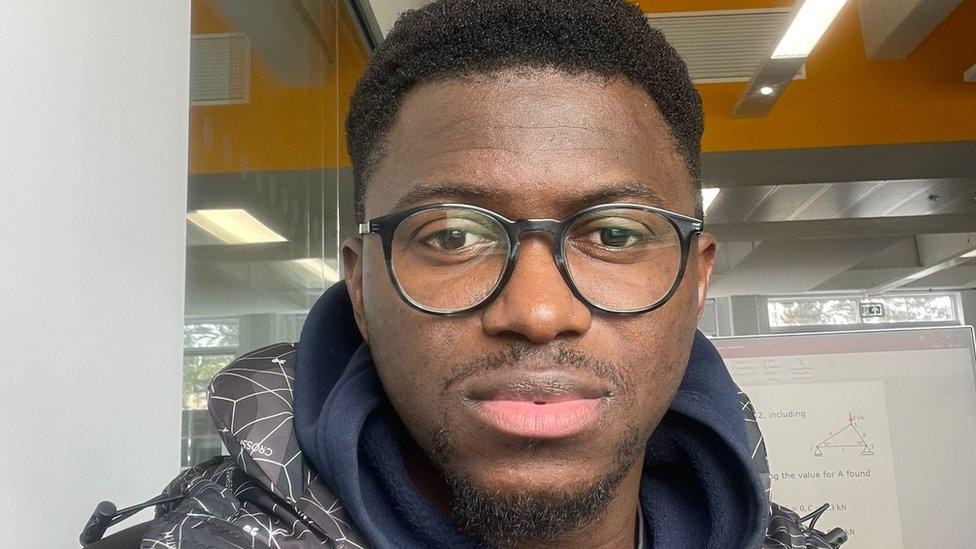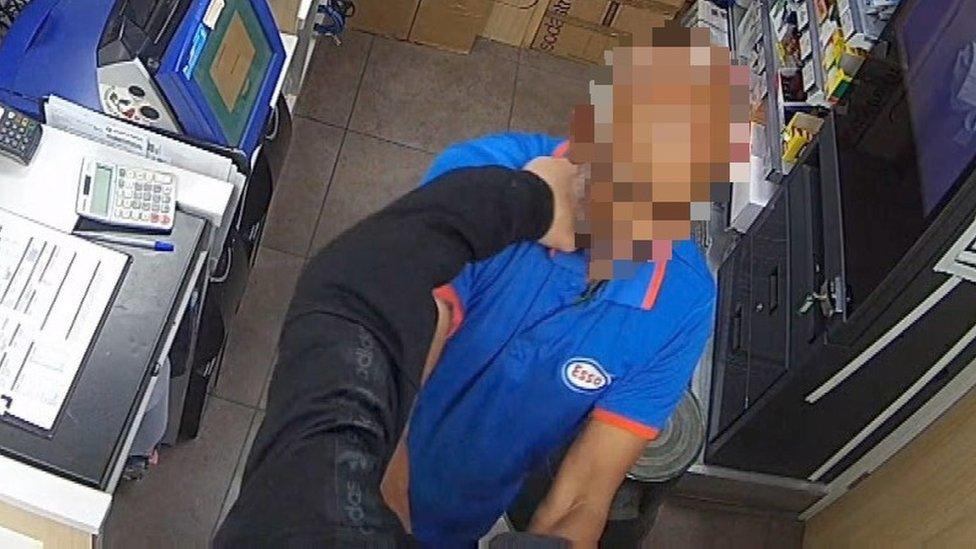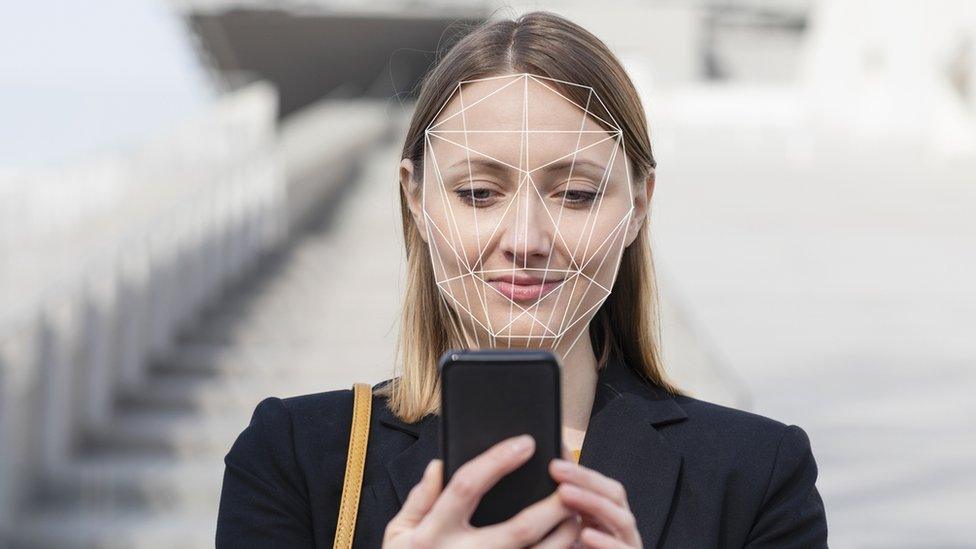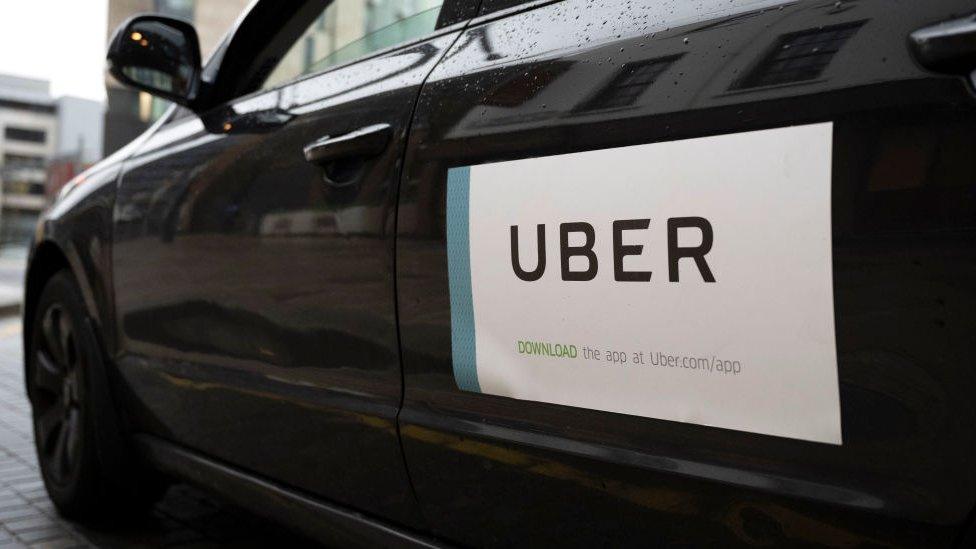Payout for Uber Eats driver over face scan bias case
- Published

A black Uber Eats driver has received a payout after "racially discriminatory" facial-recognition checks prevented him accessing the app to secure work.
When Pa Edrissa Manjang began working for Uber Eats, in November 2019, its app did not regularly ask him to send selfies in order to register for jobs.
But the Microsoft-powered Uber Eats app increased these verification checks.
And in 2021, it said after "careful consideration" his account would be removed, due to "continued mismatches".
'Racial harassment'
An Uber representative said: "Our real-time ID check is designed to help keep everyone who uses our app safe and includes robust human review to make sure that we're not making decisions about someone's livelihood in a vacuum, without oversight."
The Equality and Human Rights Commission and the App Drivers and Couriers Union funded Mr Manjang's case.
The EHRC was concerned the artificial intelligence in the facial-recognition checks had deprived him of his income.
The ADCU said the number of selfies Mr Manjang had been asked for amounted to racial harassment.
The union told BBC News it was "working hard" to ensure workers' rights were protected as "the pace of development of AI and machine-learning tools in the workplace accelerates".
'Opaque processes'
Mr Manjang, who was reinstated and continues to work for Uber Eats, in Oxfordshire, said the out-of-court settlement marked the end of a "long and difficult" period for him.
His case "shines a spotlight" on the potential problems with AI, particularly for "low-paid workers in the gig economy".
And he hoped the decision would help strengthen "rights and protections of workers in relation to AI, particularly ethnic minorities".
Baroness Falkner, who chairs the EHRC, said Mr Manjang should never have have had to sue Uber Eats to understand the opaque processes affecting his work.
"We are particularly concerned that Mr Manjang was not made aware that his account was in the process of deactivation, nor provided any clear and effective route to challenge the technology," she said.
Microsoft has previously admitted its facial-recognition software works less well for people belonging to ethnic minorities.
And previous cases, involving the police, Home Office and universities, have shown ethnicity can affect the technology.
- Published11 October 2023

- Published2 November 2021

- Published8 October 2021
